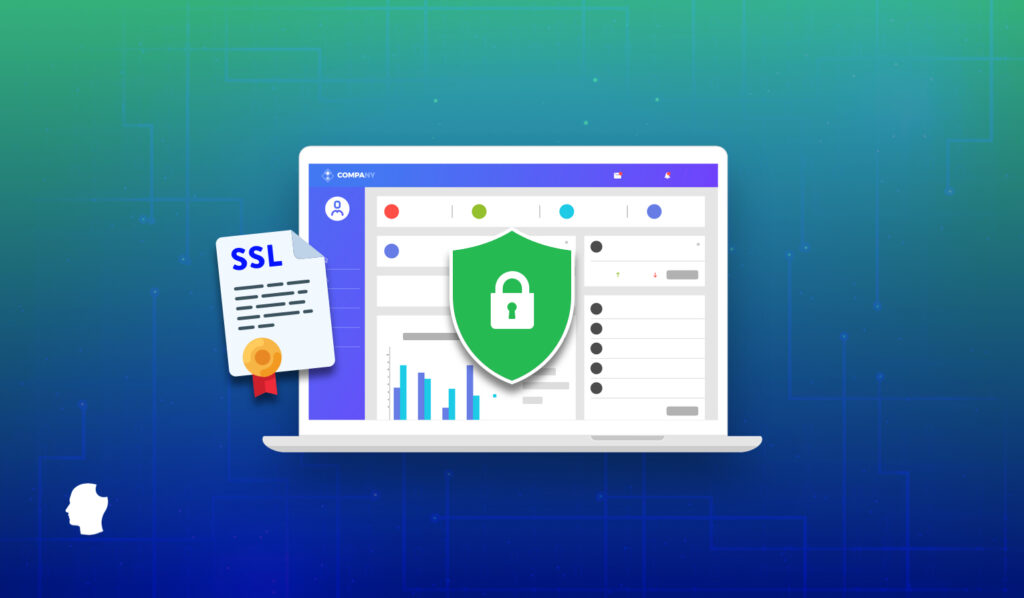Learn why SSL certificates are crucial for website security. Explore the benefits of SSL, how to install it, and FAQs about SSL certificates.
Introduction
In an increasingly digital world, ensuring the security of your website is paramount. One fundamental way to protect your site and the sensitive data it handles is through the use of SSL (Secure Sockets Layer) certificates. In this comprehensive guide, we will delve into the significance of SSL certificates for website security, their benefits, installation procedures, and address some frequently asked questions to demystify this essential component of online safety.
Table of Contents
| Table of Content |
|---|
| 1. What is an SSL Certificate? |
| 2. Benefits of Using SSL Certificates |
| 3. How to Install an SSL Certificate |
| 4. Types of SSL Certificates |
| 5. Do SSL Certificates Affect SEO? |
| 6. SSL Certificate Renewal and Maintenance |
| 7. Common SSL Certificate Errors |
| 8. SSL Certificate FAQs |
| 9. How Much Does an SSL Certificate Cost? |
| 10. Conclusion: Securing Your Online Presence |
Now, let’s dive into each of these sections:
1. What is an SSL Certificate?
An SSL certificate is a digital certificate that establishes a secure connection between a user’s web browser and a website’s server. It ensures that data transferred between the two endpoints remains encrypted and confidential. SSL certificates are identified by a padlock icon in the browser’s address bar and the “https://” prefix in the URL, indicating a secure connection.
2. Benefits of Using SSL Certificates
SSL certificates offer numerous benefits, including data encryption, authentication, and trust. They provide protection against data breaches, improve SEO rankings, and enhance user trust. Additionally, many payment processors and web browsers require websites to have SSL certificates to safeguard financial transactions and user information.
3. How to Install an SSL Certificate
Installing an SSL certificate varies depending on your web hosting provider and server type. Generally, it involves generating a Certificate Signing Request (CSR), purchasing an SSL certificate, and configuring it on your server. Detailed instructions are usually provided by the certificate authority or your hosting provider.
4. Types of SSL Certificates
SSL certificates come in various types, including Domain Validated (DV), Organization Validated (OV), and Extended Validation (EV) certificates. Each type offers different levels of validation and trust indicators. Choosing the right certificate depends on your website’s purpose and security requirements.
5. Do SSL Certificates Affect SEO?
Yes, SSL certificates can positively impact your website’s SEO rankings. Search engines like Google prioritize secure websites in their search results. Having an SSL certificate can lead to higher search rankings, increased organic traffic, and better user trust, which are crucial for the success of your website.
6. SSL Certificate Renewal and Maintenance
SSL certificates have expiration dates, typically ranging from one to three years. Regularly renewing and maintaining your SSL certificate is essential to ensure uninterrupted security. Most certificate authorities offer reminders and auto-renewal options to simplify this process.
7. Common SSL Certificate Errors
While SSL certificates are crucial, they can sometimes encounter errors, such as mismatched domain names, expired certificates, or improper installation. Understanding and troubleshooting these common errors is vital to maintain a secure website.
8. SSL Certificate FAQs
FAQ 1: What Does an SSL Certificate Cost?
The cost of an SSL certificate varies depending on the type and the certificate authority. DV certificates are generally more affordable, while EV certificates, which offer higher validation levels, tend to be pricier.
FAQ 2: Can I Get a Free SSL Certificate?
Yes, some certificate authorities offer free DV SSL-certificates. However, for higher levels of validation and features, you may need to invest in a paid certificate.
FAQ 3: How Long Does it Take to Install an SSL Certificate?
The installation time depends on your hosting provider and familiarity with the process. In many cases, it can be completed within a few hours.
FAQ 4: Do I Need an SSL Certificate if My Website Doesn’t Collect Personal Information?
Yes, having an SSL certificate is advisable for all websites. It not only secures data but also builds trust with visitors.
FAQ 5: What Happens if My SSL Certificate Expires?
If your SSL certificate expires, your website will display security warnings, potentially scaring away visitors. It’s crucial to renew it before expiration.
FAQ 6: Can I Use One SSL Certificate for Multiple Domains?
Yes, you can use a wildcard or multi-domain SSL certificate to secure multiple domains with a single certificate.
FAQ 7: Are SSL Certificates Compatible with Mobile Devices?
Yes, SSL certificates are compatible with mobile devices and ensure secure connections for mobile users.
FAQ 8: Do SSL Certificates Slow Down Website Performance?
Modern SSL certificates have minimal impact on website performance. In fact, they can improve loading times due to HTTP/2 support.
FAQ 9: Can I Install an SSL Certificate Myself?
While it’s possible to install an SSL certificate yourself, it’s recommended to seek assistance from your hosting provider or a professional to ensure proper configuration.
FAQ 10: Can I Transfer an SSL Certificate to a Different Server?
Yes, you can transfer an SSL certificate to a different server, but it requires exporting and importing the certificate files correctly.
Conclusion: Securing Your Online Presence
In an era where cybersecurity threats are prevalent, securing your online presence is non-negotiable. SSL certificates are a foundational aspect of web security, providing encryption, trust, and SEO benefits. By understanding the importance of SSL certificates and how to utilize them effectively, you can safeguard your website and build trust with your audience.

